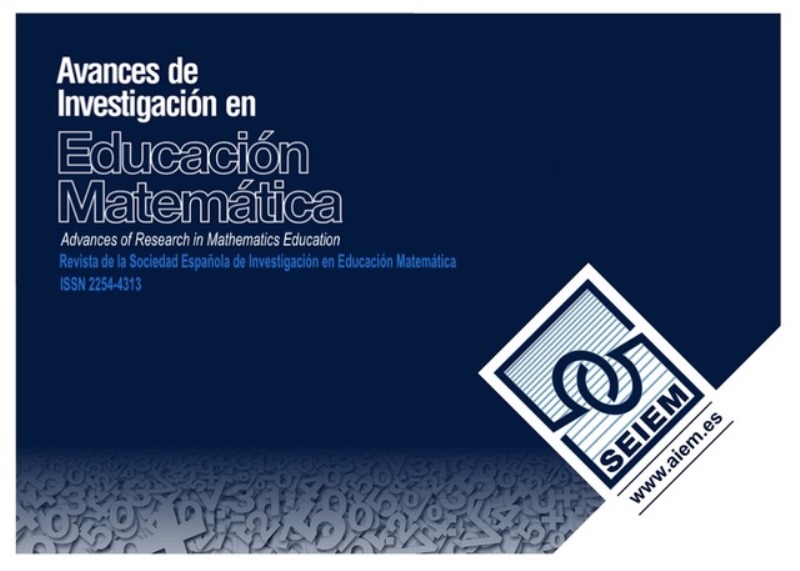Semiotic conflicts related to correlation and regressionin High Schooltextbooks
DOI:
https://doi.org/10.35763/aiem.v1i8.113Keywords:
Regression and correlation, textbooks, semiotic conflicts, High SchoolAbstract
The aim of this work is to characterize the semiotic conflicts that arise on the topic ofcorrelation and regression in the Spanish High Schooltextbooks. Acontent analysis of the chaptersdealing with this topicis performed on a sample of 16 high school textbooks, eight of the Science and Technologyspecialtyand eight directed toHumanities and Social Sciences. We baseon the onto-semiotic approachof mathematical knowledge and instruction inmathematics education that discriminates betweeninstitutional and personal meaning of mathematical objects; semioticconflictin this framework isdefined asadisparity between these two meanings. In our analysis we found a wide variety of conflictsconcerning the language used, the definition of concepts and presentation of properties and methods, along with some arguments. These results alert the teacher to avoid that such conflicts are transmitted to thestudent learning. Finally, some criteria are provided to enhance the presentation of correlation and regressionin theHigh Schooltextbooks
Downloads
Downloads
Published
How to Cite
Issue
Section
License
The articles published in this journal are under a license Creative Commons: By 4.0 España from number 21 (2022).
Authors who publish with this journal agree to the following terms:
- Authors retain copyright and keep the acknowledgement of authorship.
- The texts published in this journal are – unless indicated otherwise – covered by the Creative Commons Attribution 4.0 international licence. You may copy, distribute, transmit and adapt the work, provided you attribute it (authorship, journal name, publisher) in the manner specified by the author(s) or licensor(s). The full text of the licence can be consulted here: http://creativecommons.org/licenses/by-nc/4.0.
- Authors are able to enter into separate, additional contractual arrangements for the non-exclusive distribution of the journal's published version of the work (e.g., post it to an institutional repository or publish it in a book), with an acknowledgement of its initial publication in this journal.
- Authors are permitted and encouraged to post their work online (e.g., in institutional repositories or on their website) prior to and during the submission process, as it can lead to productive exchanges, as well as earlier and greater citation of published work (See The Effect of Open Access).









